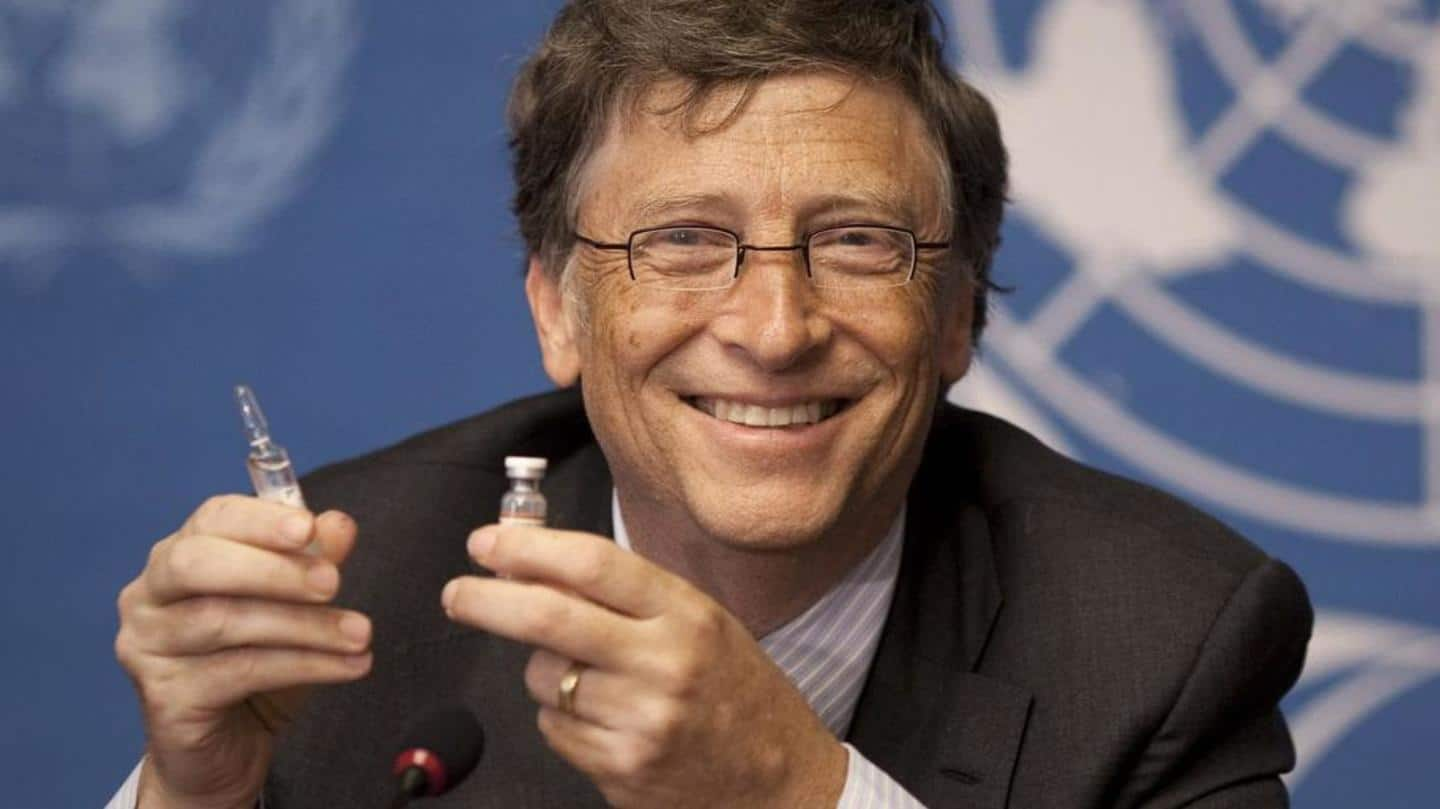COVID-19 vaccine formulas shouldn't be shared with India: Bill Gates
What's the story
It's a terrible time to be a publicist for Bill Gates. The billionaire, who the mainstream media celebrates as a philanthropist, is being criticized for his stance on vaccine patents.
When asked if he would share the COVID-19 vaccine recipes with developing nations, the tech mogul categorically refused, much to the shock of everyone who believed Gates prioritized saving lives over making profits.
Profits over lives
Gates doesn't believe in transferring vaccine tech to developing countries
The Microsoft co-founder answered with an emphatic "no" when the vaccine patent relaxation question was fielded to him during a Sky News interview.
The logic backing the query being that transferring vaccine recipes to developing countries would not only accelerate localized production but also make it possible for poorer nations to inoculate more people with cheaper vaccines.
Quote
Gates justifies stance by making this a safety, expertise issue
"There's only so many vaccine factories in the world and people are very serious about the safety... Moving a vaccine, say, from a factory into a factory in India, it's novel, it's only because of our grants and expertise that can happen at all," said Gates.
Grants and expertise
Gates believes vaccines tech transfer will be too expensive
Gates, however, provided a couple of reasons for his refusal to share vaccine recipes with poorer countries.
He contends there are limited vaccine factories in the world, and that transferring manufacturing technology can't be done without American "grants" and "expertise".
The vaccine czar essentially implies that it is impossible for developing countries to manufacture vaccines without the US spending a fortune transferring technology.
Weak argument
Contrary to Gates' claims, India is proficient at vaccine manufacturing
Except, Gates' notion that vaccine production cannot be moved to India is demonstrably false. India has shown remarkable technological proficiency in developing and manufacturing vaccines to become the vaccine hub of the world.
In fact, it had been exporting vaccines globally until US President Joe Biden invoked Defense Production Act, thereby starving India of critical materials required to keep up the manufacturing pace.
Factually incorrect
Vaccine tech transfer that Gates deemed impossible has already happened
Gates' logic is further undermined by United Nations Secretary-General Antonio Guterres deeming India's vaccine exports "the best asset that the world has today" against the pandemic.
India achieved this feat on the basis of technology transfer between the Serum Institute of India and AstraZeneca. This directly contradicts the tech billionaire's excuse that such a transfer is a major hurdle in opening up vaccine patents.
Pandemic profiteering
Gates' involvement is the reason why Oxford vaccine isn't free
Gates' controversial comments have brought increased scrutiny to his influence on global vaccine availability.
A report by Australian Fair Trade & Investment Network Ltd (AFTINET) reveals how the Bill and Melinda Gates Foundation's involvement in the partnership between the University Oxford and AstraZeneca prevented the vaccine from having an open distribution model.
Facade shattered
Increasing number of people are clueing into Gates' true nature
To make matters worse for the billionaire, media coverage of the pandemic has ensured that the public is well versed with these facts.
That makes his disingenuous justification for prioritizing vaccine profits over saving millions of lives all the more conspicuous.
The fact that developed countries such as the US have been hoarding more vaccines than they would ever need doesn't help matters either.
Chasing profits
Conflict of interest: Gates' $250 million investment in vaccine firms
The Gates Foundation declared more than $250 million in vaccine investments through regulatory filings. The foundation's $40 million-worth stake in CureVac alone has delivered profits to the tune of tens of millions of dollars.
There's ample evidence that Gates has his fingers in all vaccine pies, so he has a clear conflict of interest when choosing between saving the world and profiting off vaccines.
